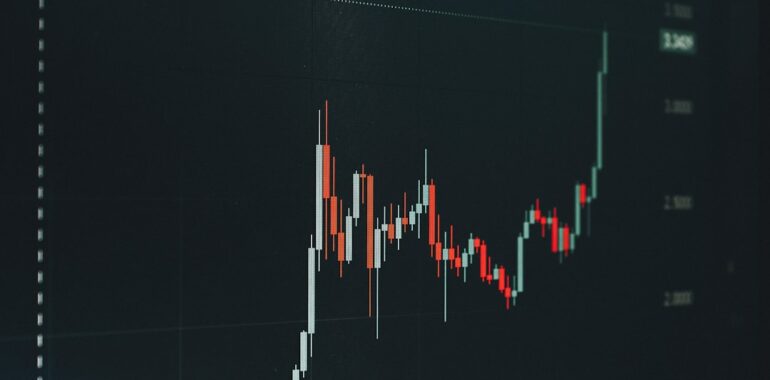Stock Short Squeeze Explained: Industry Experts Analyze GameStop’s Market Impact

Discover how stock short squeezes like GameStop’s have reshaped the market, with insights from industry veterans.
Introduction
The stock market is no stranger to dramatic fluctuations, but the phenomenon of a stock short squeeze has garnered unprecedented attention in recent years. Among the most notable instances is the GameStop saga, where a confluence of factors led to a meteoric rise in stock prices. This event not only captivated retail investors but also drew scrutiny from industry veterans and financial experts. In this article, we delve into the mechanics of a stock short squeeze, analyze GameStop’s market impact, and explore expert perspectives on this financial spectacle.
Understanding Stock Short Squeeze
A stock short squeeze occurs when a heavily shorted stock experiences a rapid price increase, forcing short sellers to buy back shares to cover their positions. This buying activity further propels the stock price upward, creating a feedback loop that intensifies the squeeze. The process typically involves:
- High Short Interest: A significant percentage of a company’s shares are sold short.
- Price Surge: Positive news or coordinated buying drives the stock price up.
- Forced Buying: Short sellers buy shares to mitigate losses, exacerbating the price increase.
This mechanism can lead to substantial volatility and has the potential to disrupt normal market dynamics.
The GameStop Phenomenon
GameStop Corp., a traditional brick-and-mortar retail gaming business, became the epicenter of a historic short squeeze in early 2021. Over a span of six months, GameStop’s stock price skyrocketed by an astonishing 8,000%, fueled largely by retail investors coordinating on social media platforms like Reddit’s WallStreetBets. This unprecedented surge compelled institutional investors who had shorted the stock to purchase shares at escalating prices, further inflating the stock’s value before a subsequent sharp pullback.
Industry Experts’ Perspectives
Ben Johnson: A Temporary Blip in the Market
Ben Johnson, Global Director of ETF Research at Morningstar, views the GameStop short squeeze as a transient event. He asserts, “Long term, this will be a blip just like all the other countless examples of this kind of thing throughout history.” Johnson emphasizes that while such events create significant buzz and dramatic short-term movements, the markets eventually stabilize based on long-term earnings and fundamentals.
Marc Wyatt: Social Media’s Role in Market Liquidity
Marc Wyatt, Head of Global Trading at T. Rowe Price, highlights a “confluence of factors” contributing to the ease of executing short squeezes today. He points to increased market liquidity, the impact of stimulus checks, the rise of remote work, and zero trading commissions. Crucially, Wyatt underscores the role of social media platforms, which empower investors to share strategies and coordinate actions rapidly, amplifying market movements.
Jim McDonald: Institutional Shifts in Short Selling
Jim McDonald, Chief Investment Strategist at Northern Trust, suggests that the GameStop event may influence how institutional investors approach short positions in the future. He notes that the shift toward zero-commission trading has facilitated increased speculation, underscoring the risks inherent in such strategies. McDonald anticipates that short sellers might adapt by reducing their short positions or utilizing alternative vehicles to mitigate the impact of future squeezes.
Paul Schatz: Echoes of the Dot-Com Bubble
Paul Schatz, President of Heritage Capital, draws parallels between the GameStop short squeeze and the dot-com bubble of the late 1990s. He observes that the current sentiment and speculative fervor mirror historical bubbles, with a concentrated focus on a select group of companies. Schatz cautions that the longer such speculative behavior persists, the more advisers will encounter clients eager to invest in these highly volatile stocks, potentially inflating the bubble further.
Market Implications
The GameStop short squeeze has wide-reaching implications for the financial markets:
- Increased Volatility: Short squeezes can lead to significant price swings, making markets more unpredictable.
- Regulatory Scrutiny: Such events attract attention from regulators concerned about market manipulation and investor protection.
- Changing Dynamics: Institutional investors may reevaluate their short-selling strategies to mitigate risks associated with coordinated retail movements.
- Empowerment of Retail Investors: The success of retail-driven short squeezes demonstrates the growing influence of individual investors in the stock market.
Future of Short Squeezes
Looking ahead, experts anticipate that variations of the stock short squeeze will continue to emerge, driven by evolving market conditions and technological advancements. Factors such as enhanced access to trading platforms, real-time information sharing, and innovative financial instruments will likely play pivotal roles in shaping future short squeezes. The key question remains how the market will adapt to these changes and what measures will be implemented to balance the interests of retail and institutional investors.
Conclusion
The GameStop short squeeze serves as a landmark event in modern financial history, highlighting the interplay between retail investors, institutional strategies, and technological platforms. While industry veterans remain cautiously optimistic about the long-term stability of the markets, the short-term disruptions underscore the need for adaptive strategies and informed investment decisions. Understanding the mechanics and implications of stock short squeezes is essential for navigating the ever-evolving landscape of the stock market.
Interested in staying updated on the latest financial trends and in-depth analyses? Join the conversation at SuperStonk today!




